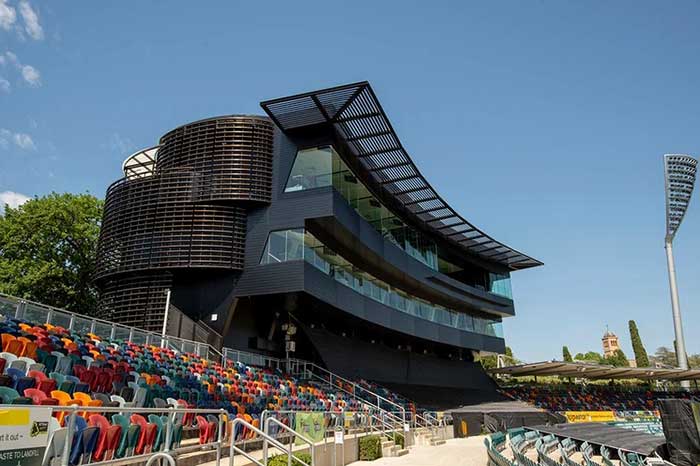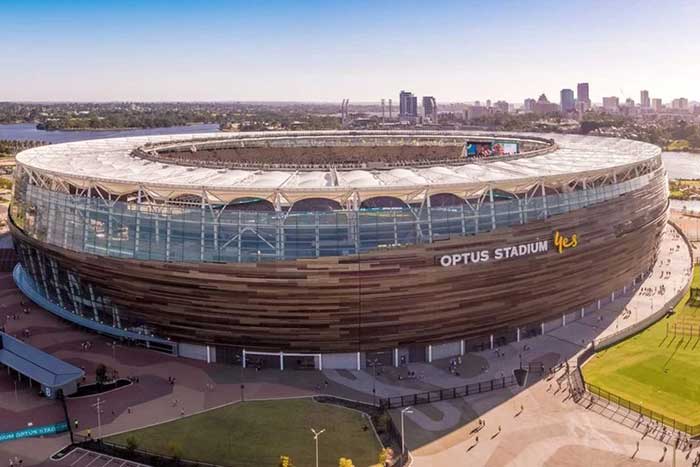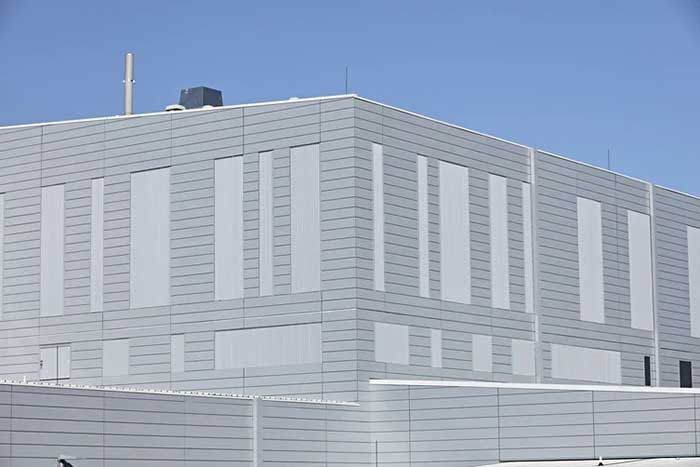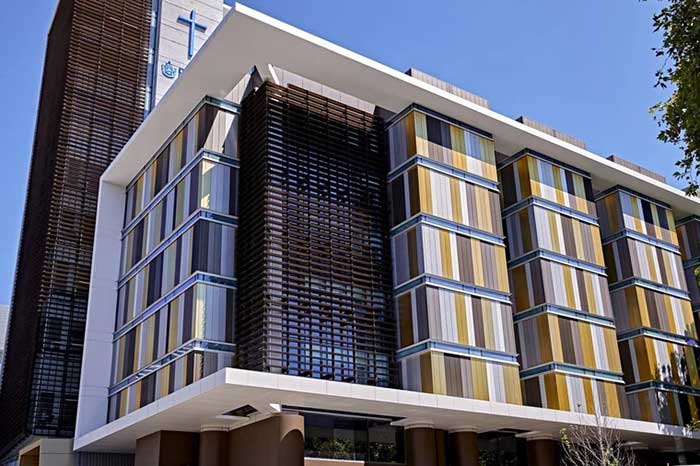Widely used for multi-residential and commercial buildings, interlocking cladding, also known as linear cladding, continues to be a popular choice for monumental architecture, due to its superior durability, environmental performance and longevity.
Interlocking aluminium and steel panels protect against the elements and require little maintenance, making them ideal for projects such as ovals and stadiums that face additional challenges when it comes to design and performance requirements.
Why aluminium linear systems are the ideal choice of cladding material for large-scale building design
For any large project, exterior cladding panels must be highly durable as well as low maintenance to overcome the harsh demands such as wind loading and weatherproofing. Linear cladding systems have superior durability as the interlocking groove secures the panels into place and permits their adjustment through a recessed or pronounced joint.
Additionally, the use of interlocking panels can completely change the overall appearance of an external façade, giving character and personality to a build. Interlocking cladding systems can be installed either horizontally or vertically, allowing for the sleek, modern appearance that is sought after by architects tasked with high-profile or large-scale projects such as stadiums and sporting arenas.
Here we explore why aluminium interlocking cladding systems are a suitable choice for large-scale buildings and the considerations that must be taken to ensure they are ‘monumental’.
Extreme weather resistance
Interlocking cladding panels are known for their durability and weather resistance. Corrosion-resistant, non-combustible and resistant to warping in heat, they are ideal for buildings exposed to harsh weather conditions, where maintenance is difficult. When interlocking cladding is installed as a rainscreen system, it protects the building against moisture and condensation. Rainscreens also create an air cavity behind the cladding for improved ventilation and thermal performance, reducing the building’s overall energy consumption.
Cost-effective
Because of their scale and frequent use, monumental buildings can be difficult to maintain. Interlocking aluminium cladding is, therefore, a cost-effective option for large-scale projects, as it requires minimal maintenance. It is also typically lightweight, and the convenient interlocking system makes for quicker, easier installation.
Customisable design
Monumental projects present an opportunity for architects to create innovative, recognisable and memorable landmark designs. With a wide range of finishing options, aluminium cladding can meet almost any creative design brief. Stryüm, the interlocking solid aluminium system from Fairview, offers a range of finishes, including metallic, woodgrain and anodised options to suit different designs. It also features a range of customisable profiles, combining concave and convex shapes to create a multi-sensory visual experience.
High performance
Although linear cladding systems are known for their incredible durability, not all interlocking panels are created equal. Metal interlocking cladding can experience oil canning, especially on panels that are made from thin sheet metal or supplied in roll form. Maintaining a strong visual appearance is paramount in high-profile architecture, therefore quality cladding must be specified to ensure aesthetic durability over time. This is why Fairview have had both their Stryüm profiles and finishes tested to AAMA 2604 and AS 4284, guaranteeing the panel’s appearance will not oil-can or warp under stress.
Sports stadiums and monumental architecture built with Stryüm interlocking cladding
Fairview’s Stryüm interlocking cladding system is made from solid aluminium and offers the largest range of profiles and finishes on the market. Suitable for larger projects, including stadiums, sports arenas, apartment complexes and hospitals, Fairview’s unique range of interlocking panels have provided durability and style to some of Australia’s most noteworthy monuments.
Manuka Oval

Stryüm enhanced Manuka Oval in Griffith ACT, providing a sleek, modern design with over 1500m² of Ebony powdercoated Stryüm Shadow panels.
Perth Optus Stadium

Perth’s Optus Stadium also features over 16000m² of Stryüm in 6 custom anodised colours in different shades of bronze. This world-class, contemporary design has landed the Perth Optus Stadium as a finalist in architecture awards across the globe, taking out first place in the 2022 Stadium Business Awards and the 2019 Good Design Awards.
National Archives of Australia

Fairview Stryüm was used as exterior cladding on the National Archives of Australia’s new preservation and storage facility in Canberra, which is expected to house around 10 million Commonwealth records. The 18,000-square-metre facility was clad in Stryüm Shadow profile, powdercoated in Silver Riche Matt and Sapphire Anodised colours.
St Vincent's Private Hospital Redevelopment

St Vincent's Private Hospital specified Fairview's Stryüm in 6 different colours for their redevelopment of a larger facility to meet the demand for continued innovation.
Choose the right cladding for your project
If you are seeking the right cladding material for your large-scale commercial project, unlock the decision-making process today.
To explore Fairview’s high performance interlocking cladding system, Stryüm, request a free cladding sample, or discuss your project with a cladding specialist, please visit our website.
Image: Perth Optus Stadium

